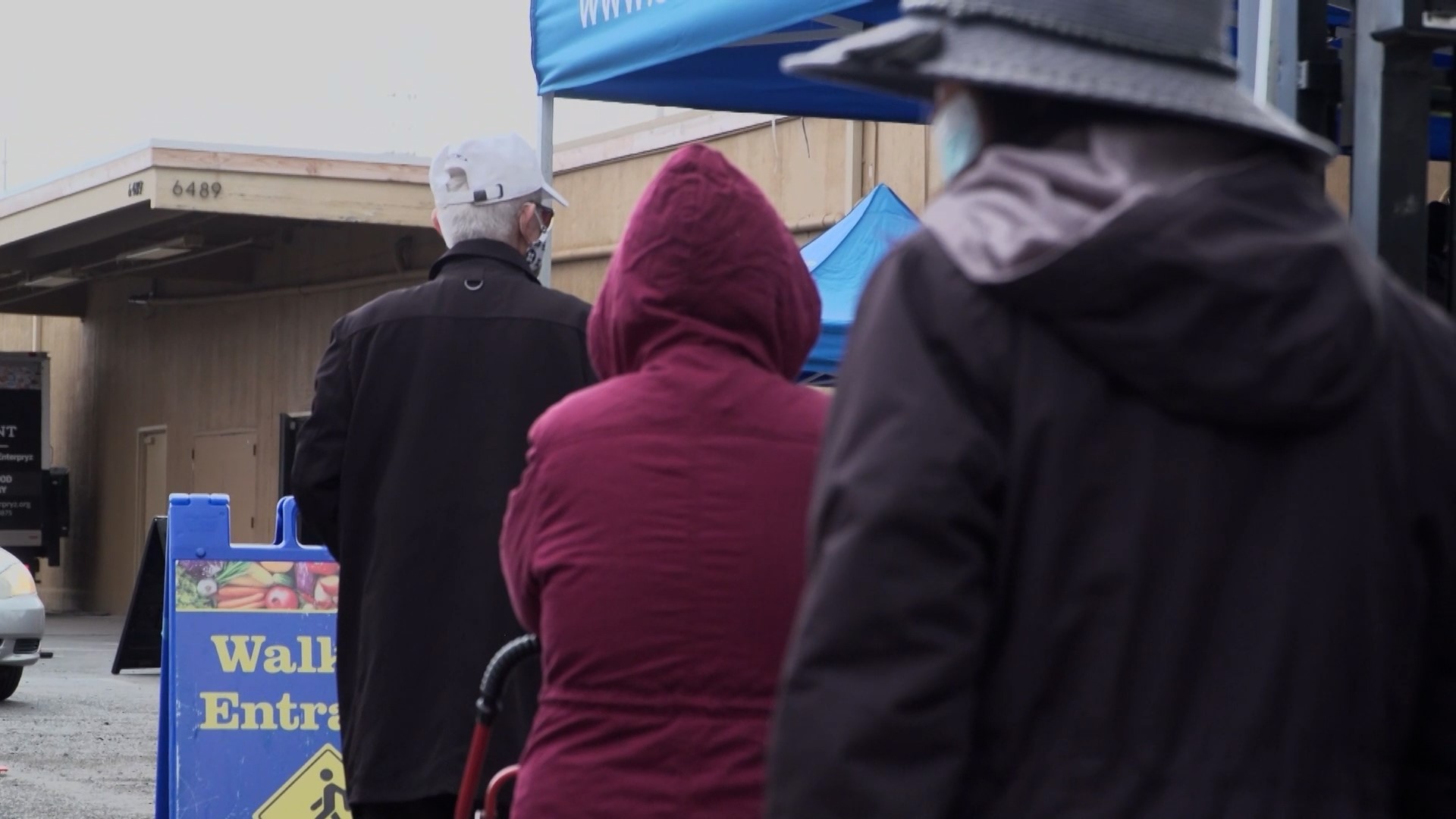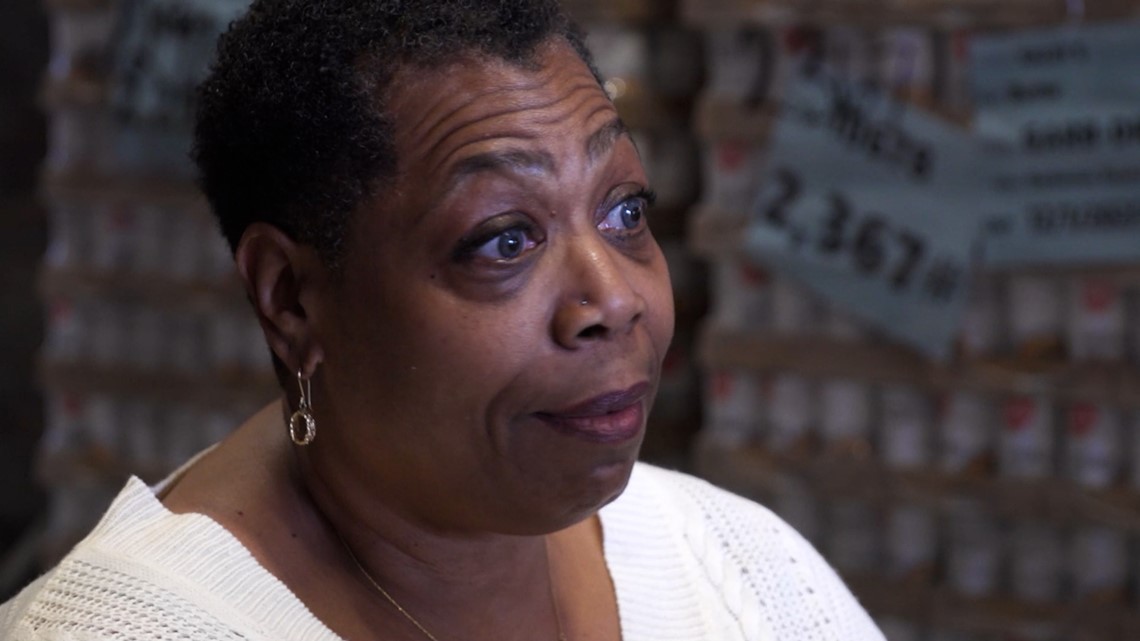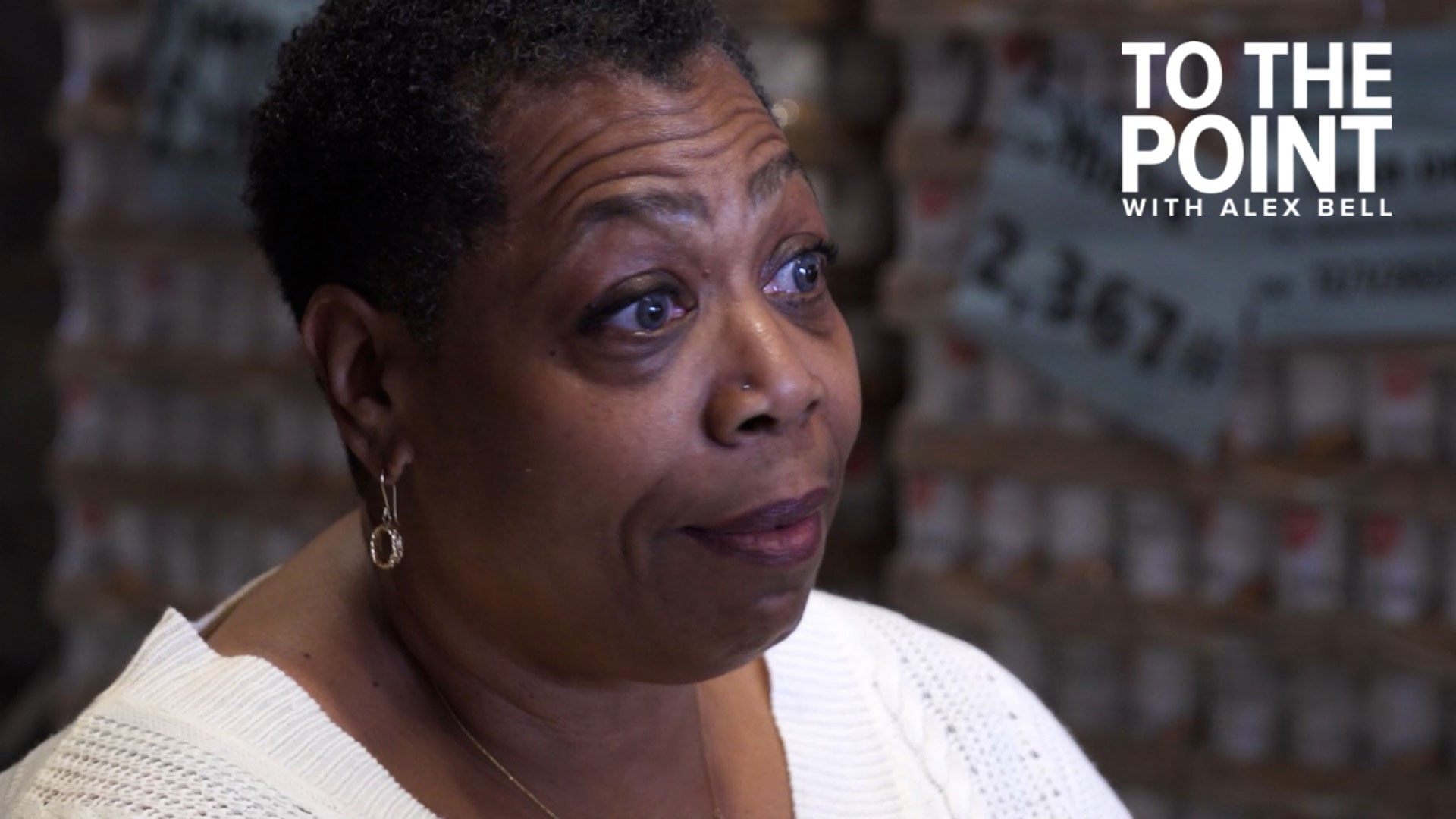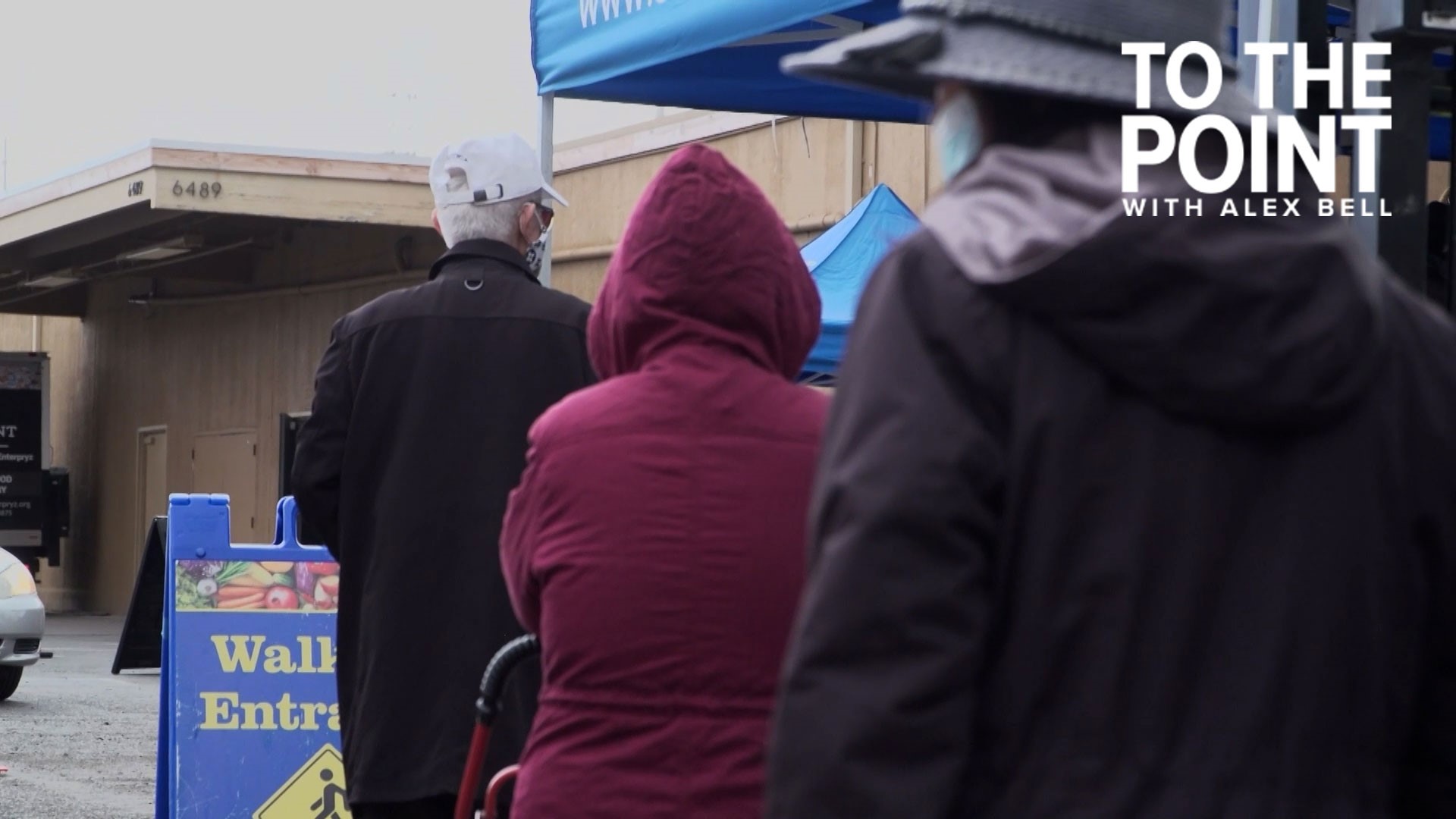Northern California woman shares story of hope after experiencing food insecurity
Keva Dean shares her story of depending on the help of others to eventually becoming the help others need.
ABC10

One Northern California woman is sharing her story of leaving an abusive relationship, experiencing food insecurity and depending on the help of others, to now being the help she needed for others.
Keva Dean's story
Meet Keva Dean
Growing up on the East Coast, Keva Dean didn’t have the best of upbringings.
“I grew up in Washington, D.C., in the projects,” said Dean. “I'm number eight of nine children.”
She said growing up she was happy even though they didn’t have a lot.
“But I didn't know, I really didn't understand how food insecure we were, right? Because we always had something to eat,” she said.
She remembered having to eat candy for dinner in some cases.
“It was because we didn't have enough food,” she said. “She (Dean’s mom) didn't have anything else to feed us, so I loved the fact that my mother could turn lemons into lemonade… we were very food insecure and very, very economically disadvantaged.”
She also remembered her mom’s distaste for using the system.
“I remember my mom hating to have to use the system. She just didn't like it,” she said.
Dean remained food insecure until her 20s.
“It was humbling,” she said.


Eventually, Dean moved to California, but her first few years in the state weren’t the best.
“I ended up in an abusive relationship... it's extraordinarily abusive, abusive relationship,” she said. “I would go to work with black eyes, he would slash my tires, and do all sorts of things to keep me from going to work.”
Eventually, she would leave that relationship but first, she had to do something before falling into food insecurity.
“I had to apply for assistance before I got out of that relationship,” she said. “And I remember when I talked to my sister and (I told her) ‘I don't want to apply because I remember how mama was when she had you’ … my sister said, 'You need some.' So I applied begrudgingly.”
Now, Dean is a supervisor at the Food Bank of Contra Costa and Solano.
“I ended up being a supervisor in the same building where I received benefits, giving out those benefits (now),” she said. “I ended up... being able to give out benefits to people who had been who I had been in their situation. So it was just, it's a blessing to have that story. Because I want to encourage people, especially women, women who have been in abusive relationships, women who have experienced things like rape and molestation, because I've experienced all that. And I've been on welfare and have had to be sustained by the system. If you work hard enough, if you have the right resources and utilize your resources, you could possibly do the same thing and end up being someone who affects the community that you have in a positive way.”
Q and A with To The Point
“To The Point” Host Alex Bell sat down with Dean to talk about her story and food insecurity.
(The following transcription has been edited down for brevity)
Alex Bell: How do we as a society in a community, let people know that it's okay that we all need a little bit of help, whatever it may be food or anything else? How do we as a society, have that conversation and allow people to feel more comfortable?
Keva Dean: When you share your story, it gives other people permission to share theirs. When you share your story with hope, when you share your story with a sense of success, then it gives other people the hope that they can be successful and also the visual that it's OK to share your story back. It's good to share your story because you realize you're not alone.
It's not fair that economically disadvantaged people don't have the resources to eat in a healthy way.
We have to understand that just being economically disadvantaged alone is enough to make you sick, to make you physically sick, emotionally sick and mentally sick.
Alex Bell: Do you feel like your food insecurity has caused any health concerns for you or your children?
Keva Dean: My mom was bedridden for the last 12 to 18 years of her life because she was so large. My baby sister died at almost 600 pounds. I (at) one point was up to 450 pounds, because when you have to eat shelf-stable foods like rice, potatoes, corn, flour, or even if you're in the habit of eating those shelf-stable foods, then those things cause high blood pressure or diabetes... high cholesterol. I have some high blood pressure, my cholesterol is high. I think I don't have diabetes, but I do think that one of the reasons why is because I was able to change my eating habits as an adult and avert some of that. And I'm still struggling.
Alex Bell: You said that you stopped working this year, you finally retired. Talk to me a little bit about that.
Keva Dean: I have only been retired for a week and a half. But what I have been doing for the last two years, is I've been more active in the community.
I've been on the board of directors for a year now at the food bank
I hold the seat, the community representative seat on the Contra Costa Council on Homelessness, so not only do I advocate for hunger and food insecurity, but I'm also working strategically with the community to avert homelessness to end homelessness in Contra Costa County.
I got to go to the White House Conference on Hunger Health Nutrition last year to represent the food bank and Feeding America.
My mother taught me to give back to the community and volunteer. I taught that to my children.
Alex Bell: Was there anything surprising when you started working with the food bank?
Keva Dean: The number of people who are out there that are hungry… even though I was serving in the welfare department, and I was giving out these benefits, I still didn't get the depth, the amount of the (gravity) of poverty.
Alex Bell: Why is this so important to you?
Keva Dean: I do this because I believe that every human being has the right to healthy food, and every human being has the right to a productive and healthy life.
Alex Bell: You're working with the food bank, you've retired. Are you still dealing with food insecurity?
Keva Dean: Every once in a while, I feel like I need to go get some food from a food distribution site, because I'm still struggling to buy that expensive, healthy food sometimes. And especially now that I'm retired. right? Because we know that people on fixed incomes generally don't have the resources to get... everything that they may need or everything that they may require.
I'm fortunate not to have that issue all the time.
Alex Bell: I know there's been a lot of takeaways, but what's been the one thing that's been a takeaway for you that has stuck with you throughout your food insecurity journey?
Keva Dean: I deserve to eat healthy, nutritious food just like everyone else. And so I thank God for the food bank, because this food bank - 60% or more of the food that we distribute is produce or high protein
My biggest takeaway is, I appreciate the rice that my mom had, I appreciate the potatoes in the flour for her to make biscuits and gravy, or biscuits and syrup because that kept me alive. But now, I like the broccoli. Now, I like the asparagus. Now, I like cabbage - I love cabbage.
Resources
Cassidie Bates with the Food Bank of Contra Costa and Solano County says they are serving between 40 and 50 pounds of food every year to people in need.
“Last year, we were serving under 300,000 people every single month, which was already a huge increase from prior to COVID,” said Bates. “Now, we are serving at least 350,000 people every single month, some months or even higher, and put it into perspective, before the pandemic we were serving about 178,000 people monthly.”
Bates adds that demand for help is still growing, but they are battling with the fact that donations are going down. They are calling on the community for help.
“Currently, for every $1 donated to the food bank, it's enough for us to provide at least two meals back to the community,” she said. “So what we ask is that if someone is in the position to help the food bank, they provide monetary donations, because we do have that purchasing power to buy in bulk.”
Here is where you can donate to help, click here.
Other food banks in our region
Contact the To The Point team
Have a story idea or question for the team? Here is how you can contact the show:
Text To The Point: 916-321-3310
Send an e-mail: ToThePoint@abc10.com




















